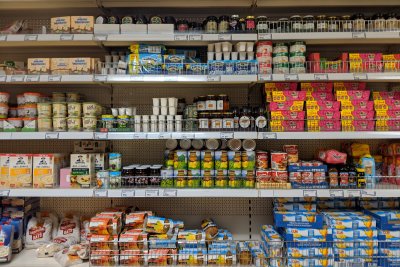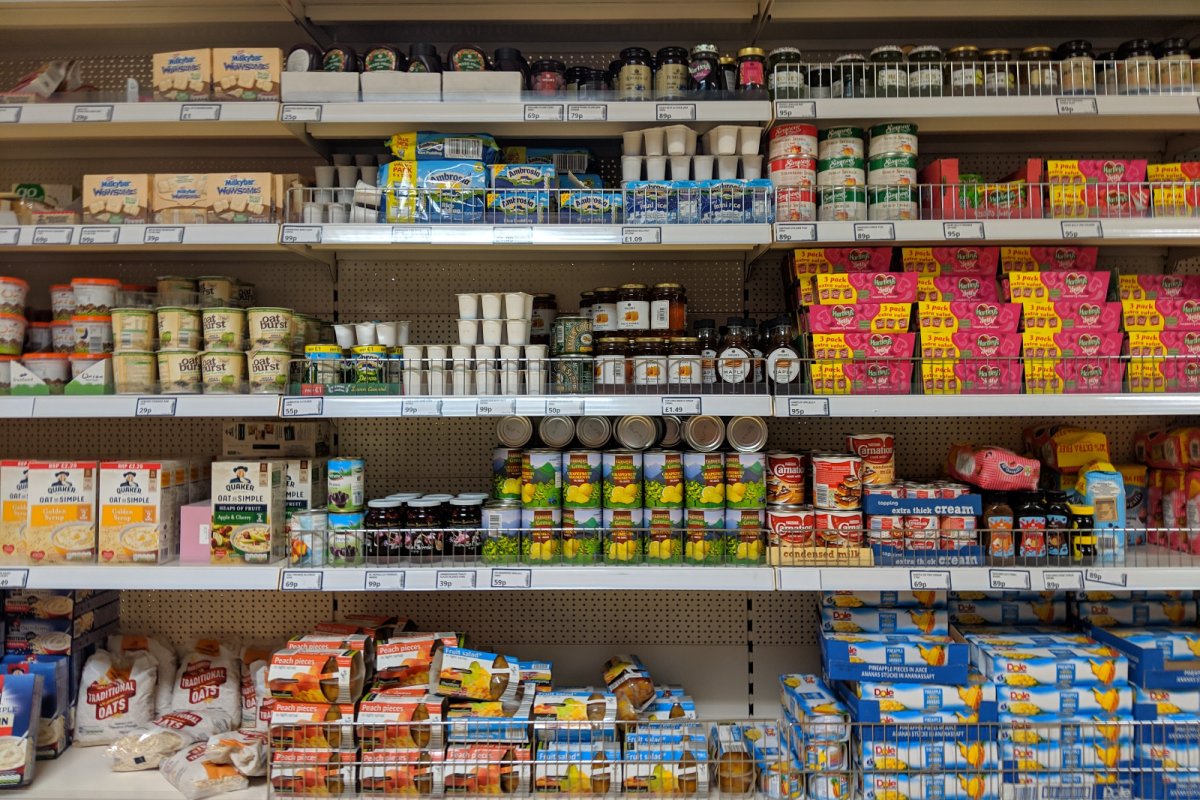 Jams, tinned fruit and other pantry items. Credit: Linus Boman | Shutterstock
Jams, tinned fruit and other pantry items. Credit: Linus Boman | Shutterstock

Council and local foodbank team up to address food insecurity in Newcastle
Sustain takes a closer look at project SNAP, a strong example of embedding wrap around support alongside food aid to address symptoms of food insecurity, run by Newcastle City Council in partnership with Newcastle Foodbank.
Here at Good Food Local, Sustain's national platform to help local authorities drive change, we love hearing about leading examples of food work from councils across the country that really make a difference. Newcastle's SNAP programme is no exception.
SNAP – Safeguarding Newcastle Against Poverty – aims to better understand, and ultimately break, the links between poverty and safeguarding risks such as financial abuse and neglect. It began as a pilot project, Partnerships for People and Place (PfPP) which was launched by Newcastle City Council in partnership with Newcastle Foodbank, in response to a significant increase in safeguarding referrals from specific areas of deprivation during COVID-19 and lockdown.
People experiencing high levels of poverty are less likely to be able to afford, access or prepare a healthy meal and poverty itself can be a factor of safeguarding risk, as a result of living in cold and damp environments or experiencing malnutrition. In addition, needing to use a foodbank may be an indicator that people could benefit from support in other areas of their life in order to prevent future crisis and address chronic drivers of food insecurity.
Through PfPP, the council delivered a comprehensive training programme to support staff and volunteers of the foodbank to identify signs of poverty, housing and inclusion issues as well as safeguarding concerns in those using the service, and equipped them with the knowledge of services and referral pathways. Training, delivered annually, is also open to all community sector voluntary organisations to increase the knowledge, skills and confidence of staff and volunteers to identify and respond to these issues.
This approach has given the council a consistent and visible presence in the community, enabling them to offer direct support to residents and connect them with the right advice and services—ideally before challenges escalate into crisis. A key added value has been the role of the foodbank as a trusted bridge between individuals who may not regularly engage with formal services and professionals who can help. They’ve seen powerful examples of how this connection has made a real difference, helping residents access support they might otherwise have missed / avoided and allowing services to respond more effectively to people’s needs.
Crucially, this approach also helps relieve some of the burden food bank staff and volunteers often face in attempting to support people facing multiple complex issues who require support services which food banks are not usually trained, supported or funded to deliver, which go far beyond provision of food.
Another important strand of the project has involved gathering intelligence from frontline organisations to help shape and adapt service delivery and develop tailored referral pathways with the goal of making systems easier to navigate and more responsive to the realities people face.
Following the success of the PfPP pilot, Newcastle City Council further invested in this approach with the development of SNAP, increasing resource and capacity to expand reach so that the team could support all Newcastle Foodbank sessions across the city. As part of this work, the team helped to establish three pop-up community pantries and worked with partners to embed wraparound support at each location, using local intelligence to link in services tailored to community needs.
The team have also collaborated with Newcastle Foodbank’s Pathways team to embed a robust triage system designed to better understand the financial circumstances of those accessing the foodbank. This approach helps identify opportunities to maximise income, reduce essential outgoings, and address broader challenges—such as housing needs or safeguarding risks. The aim is to support individuals in stabilising their lives and moving beyond crisis point, transitioning from emergency foodbank use to a more dignified, low-cost food pantry model and beyond, applying principles of the Food Ladders model. This whole-system approach enables a more holistic response, ensuring that support is not only timely but tailored to the complex realities people face.
A council’s approach to addressing food poverty is measured in our national benchmarking tool, Good Food Local.
Read other case studies from pioneering councils in the North East here.
Good Food Local: Supporting local authorities to create more healthy and sustainable food systems in their local areas.
Sustain
The Green House
244-254 Cambridge Heath Road
London E2 9DA
020 3559 6777
sustain@sustainweb.org
Sustain advocates food and agriculture policies and practices that enhance the health and welfare of people and animals, improve the working and living environment, promote equity and enrich society and culture.
© Sustain 2026
Registered charity (no. 1018643)
Data privacy & cookies
Icons by Icons8







